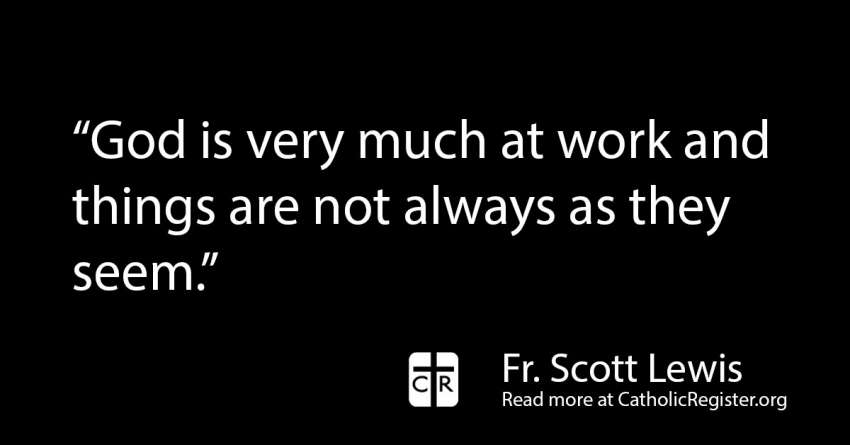God had ordered him to be the bearer of an ominous warning to Israel. They were to repent and reform their lives, returning to the ways that had been revealed to them. But most unpalatable was the divine order that they were not to resist — it would accomplish nothing, and would end with violence, blood and destruction.
The nation continued its power politics with the Babylonian superpower and persisted in its errant ways. It was an unwelcome message and Jeremiah suffered the consequences: ridicule, rejection, physical violence, even attempts on his life were his reward.
We can sympathize with his desire to quit, but it didn’t happen. Even though he tried to maintain silence, he couldn’t. The words of God burned within him. He had to speak out — his mission was engraved in his heart and soul.
One of the surest signs that we have wandered from the path of the Lord and the work to which God has called us is the experience of uneasiness, agitation, anxiety and lack of both joy and energy. When we are doing what we are supposed to, there usually will be a sense of peace and satisfaction even amid great challenges and difficulties.
Jeremiah’s message was unheeded, leaving him with the further pain of seeing the prophesied disaster come to pass. Jerusalem and the temple were destroyed and the people exiled to Babylon. Jeremiah ended his days as a refugee and it is there that he vanishes from history.
How often people, institutions and nations ignore warnings and good counsel, preferring to remain on a course that is detrimental to their safety, well-being and happiness. Instances of chosen blindness and stupidity fill the pages of history and the pages of our newspapers. Disaster seldom occurs without ample warnings and signs, but to be effective, they must be heeded.
Paul had a solution: Offer yourself to God as a living sacrifice of praise and stop thinking in material and unspiritual ways, but renew your mind in Christ.
We cannot discern the will of God or make good spiritual decisions if we live and think according to limited and materialist principles. We are desperately in need of a collective cleansing and renewal of our minds, and our very survival depends on it.
The incident of Peter’s confession of faith made the huge difference between God-thinking and human-thinking stark and clear. He had been praised to the heavens for proclaiming Jesus as the Messiah, Son of the Living God. Jesus granted him honour and authority for his God-inspired proclamation, and Peter was on top of the world. But when Jesus began to talk about His impending passion and death, Peter panicked and begged Jesus not to continue the path to the cross. Jesus turned on him in a fury, calling him “Satan” (adversary), for Peter was the instrument of temptation. He castigated Peter for thinking in human rather than divine ways.
Human thinking sees all pain, suffering, struggle and inconvenience as negative or evil, to be avoided at all costs and overcome as quickly as possible. Of course, suffering for its own sake is of no value, and spiritualizing suffering to avoid the demands of justice is unacceptable.
Suffering is part of human life and the world does not promise or owe us an easy or smooth life. But God-centred thinking is often able to perceive a higher purpose in suffering, recognizing that struggle and suffering can be stepping stones to something far higher.
This is clearly evident in the suffering and death of Jesus — it opened the doors of the kingdom of God and brought about our redemption. We are all presented with the same brute facts and events, but we interpret them through the lenses of our own consciousness and meaning system.
As we face the waves of negativity and suffering in our own world, it would be helpful to avoid knee-jerk reactions or responses formed by the media or public opinion. As we harmonize our minds with the mind of God, we begin to perceive subtle currents and connections below the surface.
God is very much at work and things are not always as they seem.


